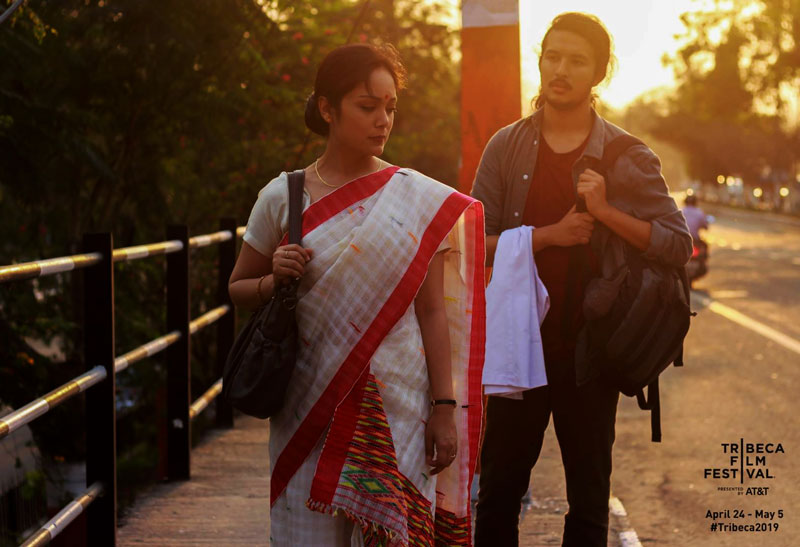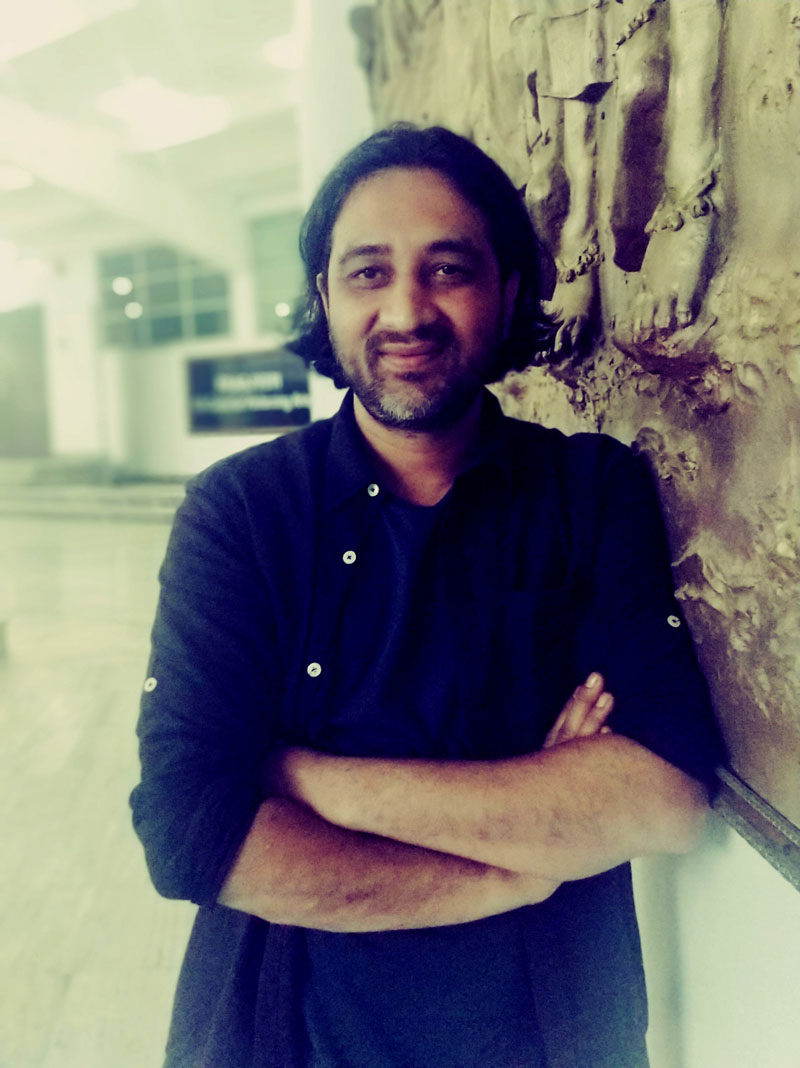
As Hazarika's film is set for its World Premiere at the Tribeca film festival, the director speaks to Rutwij Nakhwa.
Set in Guwahati, Assam, 'Aamis' (Ravening, 2019) is a dark allegory on love and desire. It revolves around the paediatrician Nirmala, a married woman, and a much younger male, the PhD student, Suman. Nirmala's concerns are her son, her clinical practice, and setting up get-togethers, while her husband is away on prolonged visits to medical camps. Suman is involved with his research on various meat-eating habits in North East India. Mutually attracted, propriety forces them to meet at public places such as restaurants, where their desire mounts as they relish meat dishes. The film raises questions on love, sex, marriage and its social mores, age, gender and, significantly, dietary choices. Ultimately, the couple's repressed love transforms into a shared gastronomic passion that becomes all-consuming, insatiable and after a point, even unnatural. ‘Aamis’ features newcomers Lima Das and Arghadeep Baruah, and is produced by Poonam Deol (Signum Productions), Shyam Bora (Metanormal), co-produced by Anshulika Dubey and Priyanka Agarwal from Wishberry Films.
Bhaskar Hazarika’s debut work ‘Kothanodi' (The River of Fables) premiered at the 2015 Busan International Film Festival, winning the Asian Cinema Fund’s Post-Production Fund Award. Thereafter it travelled to many international festivals and won the Best Feature Film Award in Assamese at India’s 63rd National Film Awards.
Where did the story come from?
A chance sighting of a couple silently eating meat together in a public place led to this seemingly bizarre story. During our research, we found even weirder cases in real life. To paraphrase Mark Twain: fiction has to stay in the realms of the possible, while truth doesn’t; hence truth is always stranger than fiction.
Does your own conception of love drive the film’s doomed couple?
I try not to bring in my personal beliefs into my work. But as a writer, it is inevitable that some aspects of my own world view will unconsciously seep into my work.
Tell us about casting your unusual lead pair?
Both Lima Das and Arghadeep Baruahmake their debut in this film. We wanted new faces because known actors come with their own baggage. We wanted to ensure that our actors get totally submerged by our characters. The intensive workshop led by SeemaBiswaswith both really paid off. They have done so well for first-timers. In real life, Lima is a dentist besides being a respected classical dancer in the Sattriya dance form. Argha, a free spirit, works in the environment and development sectors, apart from singing with his band Bottle Rockets.
Was the film’s remarkable confluence of romance, horror and thriller pre-visioned in the script?
Yes. We wanted to switch genres midway into the film to underline how life can suddenly and dramatically change for any one of us at any given moment.
What is your personal relationship with food?
I like eating it. I have learned to cook over the years, thanks to the excellent tips by my wife Alka.
Do you think there is a connection between love, sex and food (especially meat)?
I’m pretty sure there is. Many philosophers and psychologists over the years have argued that ingestion (of food), excretion (of waste), and procreation are interconnected at a psychological level, and not just because all involve cavities into our body.
Who made all the gourmet-style food used on set?
The food was designed by our production designer Manas Baruah, who also cooked it on set with the help of KarpumPegu, our costume assistant whose culinary skills found a happier home in the ‘Aamis’ kitchen!
Did the awards at Busan’s Asian Cinema Fund and NFDC’s Film Bazaarimpact the final film?
We received positive and helpful feedback on the script at both, while developing the project. On its completion, Film Bazaar’s Viewing Room again showcased it [‘Aamis’ was also in the 2017 Film Bazaar’s Co-Production Market] to industry professionals which generated a lot of buzz.

As with 'Kothanodi', does the culturally and geographically specific story of ‘Aamis’ have a universality that audiences worldwide respond to?
I tend to disagree. ‘Kothanodi’ was indeed very rooted in its culture, but in terms of storytelling and treatment, it followed universal genre tropes. In ‘Aamis’, even the setting and world of the story is universal - considering it is set in a modern 21st-century city. The idea is to make films which are local in content, but global in relevance.
You often use the surreal to emphasize reality in life. Do you believe that forces beyond our understanding do creep or even control aspects of our daily lives?
I'm not a big believer in the supernatural. But I do find that the insertion of the surreal into a mundane world throws up so many interesting perspectives on reality.
In a market like India where commercial star-studded films rule box-office, how have you found ways to make your films viable commercially? Do you have any suggestions here?
Our struggle is to stop being dependent on the box-office for revenue. The Indian box-office in its current state is heavily rigged against independent cinema. So our idea is to explore global avenues for film sales, including digital. For that to be successful our content will also have to move from the art-house space to genre filmmaking.
What next? Have you a new film on the cards?
I always have a new film on the cards! Do you know a producer? :)
This article first appeared in the On Global Screens magazine. Subscribe now!